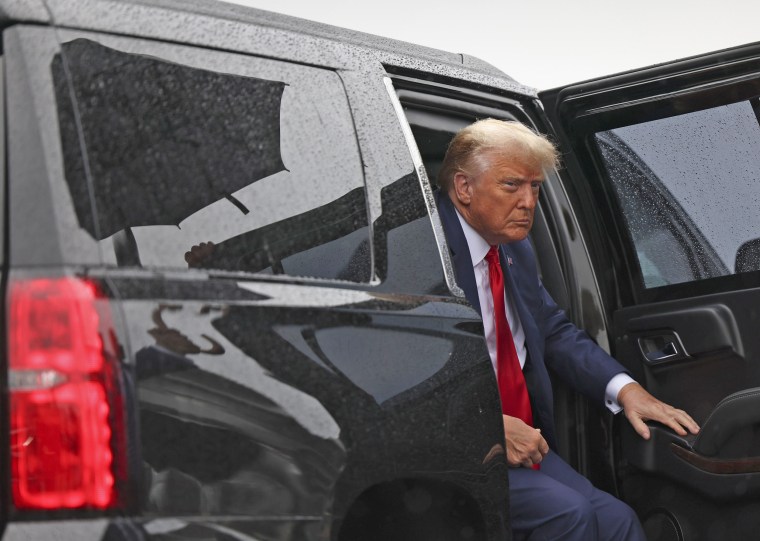WASHINGTON — Former President Donald Trump plans to use prosecutors' words in criminal cases against his fellow Jan. 6 defendants to undermine the special counsel's case against him, according to court filings submitted late Monday.
Jury selection in the first of four pending criminal cases against Trump is scheduled to begin in just over three months, on March 4.
Trump's lawyers pointed to prosecutors' words in other Jan. 6 cases in which defendants tried to blame Trump for their actions that day, saying prosecutors’ responses to those claims undermined the government’s current argument that Trump shares responsibility for what happened.
"Prosecutors from the United States Attorney’s Office for the District of Columbia (‘USAO-DC’) repeatedly took positions in public that are inconsistent with the Special Counsel’s new contention," Trump's attorneys wrote in a filing late Monday.
In a discovery letter sent over Thanksgiving weekend, the special counsel's staff said it disagreed with the position laid out by Trump's team.
"The Department’s position in other January 6 cases that the defendant’s actions did not absolve any individual rioter of responsibility for that rioter’s actions — even if the rioter took them at the defendant’s direction — is in no way inconsistent with the indictment’s allegations here," it wrote.
The filings also suggest that Trump's team plans to argue that he actually believed his debunked claims about the 2020 presidential election. If Trump genuinely believed his own false claims that the election was stolen, his attorneys could argue, then he lacked the criminal intent required for a jury to find him guilty.
"It was not unreasonable at the time, and certainly not criminal, for President Trump to disagree with officials now favored by the prosecution and to rely instead on the independent judgment that the American people elected him to use while leading the country," Trump's lawyers wrote.
As members of Congress and prominent right-wing figures use video to promote the false conspiracy theory that undercover operatives were pushing the violence on Jan. 6, 2021, Trump's team also said it was "entitled to all information regarding undercover agents and individuals acting at the direction of official authorities at the Capitol on January 6."
The special counsel's office, Trump's team wrote, "cannot contend that President Trump is 'responsible' for January 6 while suppressing public and private statements to the contrary by other prosecutors and officials during prior cases, information relating to security measures that informed President Trump’s remarks and assessment of the situation, and instances of undercovers and informants who infiltrated the crowd on that day."
Special counsel Jack Smith's team, in its letter over the weekend, said Trump's requests "regarding the pipe bomb investigation, offers of immunity to January 6 defendants, 'Antifa,' sources, and various named and unnamed January 6 offenders" appear "to be focused on others’ actions related to the January 6 attack on the Capitol" and often exceeded the scope of its discovery obligations or referred to materials not in the possession of the special counsel team.
"To the extent that we possess any such materials, we have produced them to you," it wrote.

